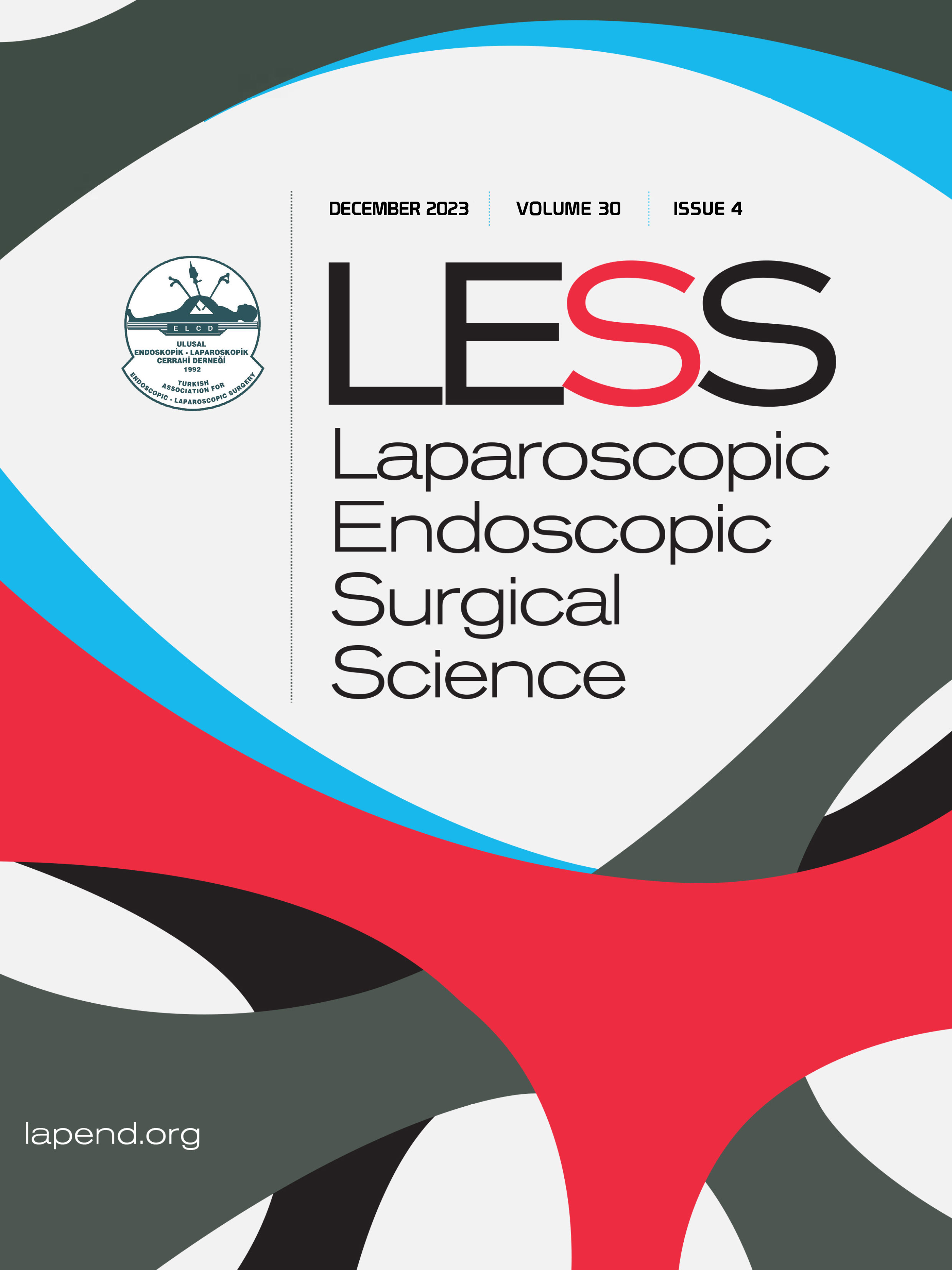Histopathological findings and helicobacterpylori infection frequency in 816 sleeve gastrectomy materials for morbid obesity
Özgen Arslan Solmaz1, Hadice Akyol1, Fatih Erol21ELAZIG TRAINING AND RESEARCH HOSPITAL, PATHOLOGY, ELAZIG, TURKEY2MALATYA SPECIAL GÖZDE ACADEMY HOSPITAL,MALATYA,TURKEY
INTRODUCTION: Morbid obesity is severe obesity that threatens and shortens a persons life. Today, surgery is almost the only treatment method that has been proven to treat morbid obesity. Endoscopic gastric examination is not performed preoperatively due to the complications that are associated with gastric pathologies that have not been defined. There are few studies for the purpose of determining histopathological findings in cases of sleeve gastrectomy specimens. It is thought that some postoperative complications may be related to existing histopathologic findings.
METHODS: Preparations of 816 sleeve gastrectomy specimens examined in the pathology laboratory were reevaluated and evaluated histopathologically.
RESULTS: Fifty-seven percent of 816 patients (n=465) showed no significant anomaly. Fourteen percent (n=114) showed non-Helicobacter-related gastritis. In 26% (n=212) of cases, Helicobacter pylori-associated gastritis was detected, and in 0.36% (n=3) of cases,specific gastritis (lymphocytic gastritis) was found. In 2.64% (22) of cases, intestinal metaplasia was observed. H.pylori was negative in 72% (n=588) and positive in 28% (n=228) of cases.
DISCUSSION AND CONCLUSION: We concluded that H.pylori infections do not have a risk of postoperative complications. However, if premalignant lesions, such as intestinal metaplasia, are suspected, we believe that preoperative endoscopic examination of the stomach should be performed.
816 Sleeve gastrektomi materyalinde histopatolojik bulgular ve helikobakter pilori enfeksiyon sıklığı
Özgen Arslan Solmaz1, Hadice Akyol1, Fatih Erol21elazığ eğitim ve araştırma hastanesi patoloji, elazığ, türkiye2malatya özel gözde akademi hastanesi, malatya, türkiye
GİRİŞ ve AMAÇ: Morbid obezite, kişinin hayatını tehdit eden ve yaşamını kısaltan şiddette obeziteyi tanımlar.Günümüzde cerrahi, morbid obeziteyi tedavi ettiği kanıtlanmış tek tedavi yöntemidir. Önceden tanımlanmamış mide patolojileri ile ilişkili komplikasyonlar nedeniyle endoskopik gastrik muayene preoperatif yapılmamaktadır. Sleeve gastrektomi örneklerinde histopatolojik bulguların belirlenmesi amacıyla az sayıda çalışma bulunmaktadır.
YÖNTEM ve GEREÇLER: Patoloji laboratuvarında incelenen 816 sleeve gastrektomi spesimeninin preparatları tekrar değerlendirildi ve histopatolojik olarak değerlendirildi.
BULGULAR: 816 hastanın (n = 465) %57'sinde anlamlı bir anomali görülmedi. %14'ünde (n = 114), Helicobacter ile ilişkili olmayan gastrit görüldü. Olguların% 26'sında (n = 212) Helicobacter pylori ile ilişkili gastrit tespit edildi ve% 0.36 (n = 3) olguda spesifik gastrit (lenfositik gastrit) saptandı. Olguların% 2.64 (n=22) 'sinde intestinal metaplazi gözlendi. H.pylori olguların% 72'sinde (n = 588) negatif,% 28'inde (n = 228) pozitif bulundu.
TARTIŞMA ve SONUÇ: H.pylori enfeksiyonlarının postoperatif komplikasyon riski taşımadığı sonucuna vardık. Ancak, intestinal metaplazisi gibi premalign lezyonlardan şüpheleniliyorsa, midenin preoperatif endoskopik muayenesinin yapılması gerektiğine inanıyoruz.
Corresponding Author: Özgen Arslan Solmaz, Türkiye
Manuscript Language: English












